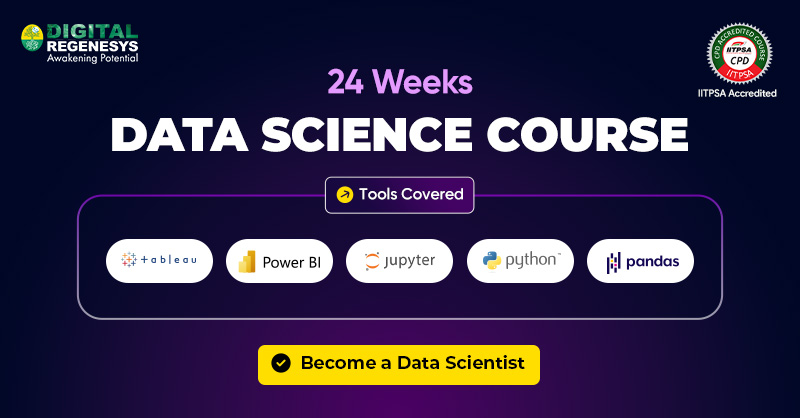How To Become An AI Engineer In Zimbabwe: A Step-By-Step Guide

An AI Engineer designs and develops computer systems capable of performing tasks that require human-like intelligence. In Zimbabwe, AI Engineers can contribute to advancements in agriculture, healthcare, finance, and education. These applications show how AI is becoming an essential part of Zimbabwe’s digital growth. By learning and applying AI engineering skills, professionals can position themselves for growth in this fast-evolving field.
This article explains how to become an AI Engineer in Zimbabwe, covering the essential skills, qualifications, and career opportunities available.
What Is Artificial Intelligence?
Artificial Intelligence refers to the creation of systems capable of performing tasks that usually require human intelligence. These tasks include recognising patterns, making predictions, processing natural language, and learning from data. AI is made possible by machine learning algorithms, deep learning networks, and advanced data processing techniques.
Globally, AI is shaping industries by improving efficiency, decision-making, and innovation. In Zimbabwe, it has growing relevance in agriculture, healthcare, finance, education, and public service delivery sectors, where intelligent systems can bring measurable impact.
Why Is Artificial Intelligence In High Demand In Zimbabwe?
Artificial Intelligence is in high demand in Zimbabwe as organisations look for more innovative ways to work, reduce costs, and make better use of data. The push for digital transformation across industries has increased the need for AI skills, creating more career opportunities for professionals in this field.
Below are several interlinked factors that are driving the demand for AI in Zimbabwe, the key drivers are:
1. Digital Transformation Push
Businesses are adopting automation, machine learning, and predictive analytics to maintain competitiveness.
2. Data Availability
Increasing data generation requires advanced AI tools to process and analyse it effectively.
3. Sector-Specific Needs
AI supports yield prediction in agriculture, assists diagnostics in healthcare, and detects fraud in financial services.
4. Cost Efficiency
AI reduces operational costs, a critical factor in Zimbabwe’s cost-sensitive economy.
This is creating strong demand for AI Engineers across both the public and private sectors, with more organisations actively seeking in-house AI expertise.
Read Why Do We Need Artificial Intelligence? Learn Here

How To Become An AI Engineer In Zimbabwe?
If you want to become an AI Engineer in Zimbabwe, you need to have the right mix of technical skills, practical experience, and continuous learning. You do not need to be a mathematics expert or hold a PhD; what matters most is the ability to learn, experiment, and solve real-world problems using data and algorithms. By following a structured path, aspiring professionals can gain the skills and confidence needed to succeed in this growing field.
Step-by-Step path to become an AI Engineer is :
1. Learn the Basics of AI and Machine Learning
Gain knowledge of core concepts such as supervised learning, neural networks, natural language processing, and computer vision.
2. Build Strong Programming Skills
Focus on Python, the most widely used language in AI, and learn libraries like TensorFlow, PyTorch, and scikit-learn.
3. Understand Mathematics for AI
Develop skills in linear algebra, calculus, probability, and statistics, as these form the foundation of AI model development.
4. Get Certified in AI or Machine Learning
Enrol in structured courses and earn certifications to strengthen your credibility and demonstrate expertise to employers.
5. Work on Real AI Projects
Apply your skills in practical settings by building models, analysing data, and testing AI solutions.
6. Build a Portfolio
Showcase your projects, problem-solving approach, and results in an online portfolio that employers can review.
If you follow this pathway, you can gain the technical expertise and practical experience required to thrive as an AI Engineer in Zimbabwe. With consistent learning and hands-on application, you can develop a career that is both rewarding and in high demand.
What Qualifications Do You Need To Become An AI Engineer In Zimbabwe?
An AI Engineer in Zimbabwe needs specific qualifications and skills to stand out in a competitive market. While a formal degree can provide a strong foundation, many professionals enter the field through targeted learning courses, certifications, and hands-on projects. Such as Digital Regenesys offer an industry-relevant Certification Course in Artificial Intelligence that equips learners with practical AI knowledge and skills for today’s job market. To
Below are the key qualifications and skills needed to become an AI Engineer:
Educational Background
A degree in computer science, mathematics, engineering, or a related field can be valuable, but it is not mandatory for success.
- Technical Skills
- Programming languages such as Python, R, or Java
- Understanding of machine learning algorithms
- Data manipulation and analysis skills
- Experience with cloud platforms and APIs
- Model training, testing, and deployment
- Familiarity with deep learning frameworks like TensorFlow or PyTorch
Certifications
Completing structured courses or earning recognised certificates in AI, data science, or machine learning can enhance your credibility and show your dedication to the profession.
While formal qualifications can help, becoming an AI Engineer in Zimbabwe is more about skills, continuous learning, and practical experience. Building a strong portfolio and gaining relevant certifications can carry as much weight as a traditional degree.
Role Of An AI Engineer In Zimbabwe
An AI Engineer develops intelligent systems that automate processes, interpret data, and enable better decision-making. These roles combine programming, data science, and machine learning expertise with problem-solving skills tailored to real-world challenges.
Common Responsibilities include:
- Designing and training machine learning models
- Collaborating with data scientists to analyse datasets
- Building AI-powered applications such as chatbots and recommendation engines
- Monitoring and improving AI models over time
- Working with multidisciplinary teams to deploy AI solutions
- Staying updated with the latest AI tools, frameworks, and research
In Zimbabwe, AI Engineers are often tasked with creating solutions for local needs, such as precision agriculture platforms, health diagnostic tools, and financial fraud detection systems.
Also, read the article Career Guide on How to Become an Artificial Intelligence Engineer.
Career Opportunities In the AI Engineering Field In Zimbabwe
The AI job market in Zimbabwe is expanding rapidly. As industries integrate AI solutions, more roles are emerging at different seniority levels.Career paths in this field vary depending on skills, experience, and project complexity.
The levels and roles are as follows:
1. Entry-Level Roles
At the entry level, positions such as AI Developer or AI Analyst are common. These roles involve supporting senior engineers by preparing datasets, running model training experiments, testing algorithms, and documenting processes. Professionals in these positions typically earn well but gain valuable hands-on exposure to real-world AI projects.
2. Mid-Level Roles
Mid-level positions, such as AI Engineer or Machine Learning Specialist, require more advanced technical skills and a track record of delivering AI solutions. Responsibilities may include designing and deploying machine learning models, optimising algorithms, integrating AI into existing systems, and mentoring junior staff. Salaries for these roles generally range higher.
3. Senior-Level Roles
At the senior level, positions like Lead AI Engineer or AI Architect involve overseeing project lifecycles, designing AI strategies, and ensuring that solutions align with organisational goals. These professionals often manage teams, coordinate with multiple departments, and explore cutting-edge AI innovations. Senior-level roles can command salaries based on their experience and industry.
Below are the industries hiring AI Engineers in Zimbabwe:
- Fintech and banking
- Health technology
- Telecommunications
- Logistics and supply chain
- Agritech and environmental monitoring
These industries offer a mix of permanent, contract, and freelance roles, with increasing opportunities for remote or hybrid work arrangements.
AI Engineer And Its Role In Shaping The Future
The role of an AI Engineer in Zimbabwe is set to grow rapidly as businesses and public institutions continue to embrace digital transformation. Artificial intelligence is becoming a key driver of innovation, efficiency, and competitiveness across multiple sectors.
Below are the key future trends shaping AI engineering careers in Zimbabwe:
1. Technology Advancements
AI Engineers will increasingly work with advanced tools such as deep learning, natural language processing, computer vision, and generative AI. These technologies are expected to shape how businesses operate, from automating customer service to predicting market trends.
2. Career Growth Potential
For professionals in this field, the future promises more specialised roles and leadership opportunities. Those who keep upgrading their skills will move into positions such as AI Solutions Architect, Head of AI Strategy, or Chief Technology Officer (CTO).
3. Global Opportunities
AI skills are in demand worldwide, meaning Zimbabwean professionals can also work remotely for international companies. This opens up access to higher-paying projects and global networking opportunities.
4. Contribution to Zimbabwe’s Development
AI Engineers will play an important role in solving national challenges, improving access to healthcare, enhancing agricultural productivity, and making financial services more inclusive. By applying AI responsibly, they can contribute to sustainable growth and social impact.
In short, the future for AI Engineers in Zimbabwe is promising, with opportunities for continuous learning, leadership, and global collaboration.
Conclusion
Building a career as an AI Engineer in Zimbabwe can help you grow professionally while also making a positive difference in the country. Whether you are moving from software development, data analysis, or starting with no experience, this career is open to anyone willing to learn.
By gaining the right skills, working on real projects, and earning an industry-recognised Certification Course in Artificial Intelligence from Digital Regenesys, you can set yourself up for success in this fast-growing field.
Last Updated: 28 January 2026
